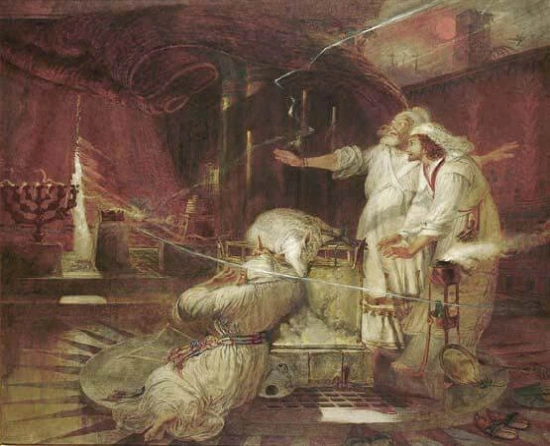1754. 'Aner, Eshkol, and Mamre' means the things residing with them. This is clear from what has been stated about the same three at verse 13 above, that is to say, that by the names of these men are meant the goods and truths from which the battle was fought rather than the angels themselves; for, as has been stated, angels are meant by the expressions 'young men' and 'men', since angels do not ever have personal names but are distinguished from one another by the kinds of goods and truths with them. This is why in the Word nothing else is meant by 'a name' than the essence and the nature or character of the named, as shown already in 144, 145, 340, and as becomes clear also in Isaiah, where the Lord is spoken of,
His name will be called, Wonderful, Counsellor, God, Hero, Father of Eternity, Prince of Peace. Isaiah 9:6-7.
'Name' is here used to mean His nature, that is to say, that He is Wonderful, Counsellor, God, Hero, Father of Eternity, Prince of Peace.
[2] In Jeremiah, where also the Lord is spoken of,
This is His name which they will call Him, Jehovah our Righteousness. Jeremiah 23:5-6.
Here it is quite clear that the 'name' is Righteousness. Then in Moses, where also the Lord is spoken of,
He will not endure your transgression for My name is in the midst of Him. Exodus 23:21.
Here too 'name' stands for Essence - that it is Divine. The same is in addition clear from many other places in the Word where it is said that men called on the name of Jehovah, that they should not take Jehovah's name in vain; and in the Lord's Prayer, Hallowed be Your name. The same applies with the names of angels, as it does here with the names Eshkol, Aner, and Mamre, who represent angels, in that those names mean the things that exist with angels.








